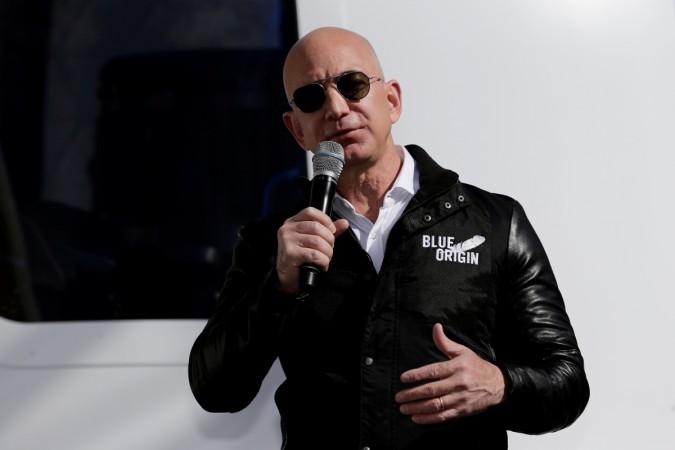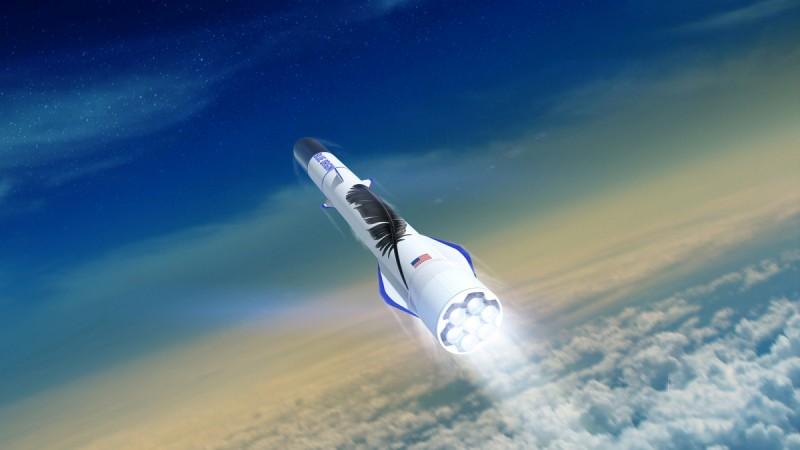
Jeff Bezos is racing to pull his private space company out of start-up mode and move into production amid signals that his firm's heavy rocket set for lift-off in 2020 may slip behind schedule, according to people familiar with the project.
Blue Origin has added hundreds of engineers over the past three years and continues to ramp up in an expansion that one employee described as "hyperbolic." The Kent, Washington-based company is looking to double its current workforce to around 3,000 employees over the next two to three years, a top customer told Reuters.
The urgency centres on a rocket dubbed New Glenn. The heavy-launch vehicle, which Bezos promises will be able to haul satellites and, eventually, people into orbit, is central to the company's hopes of winning lucrative military and commercial contracts.
New Glenn's first-stage booster will be reusable, a key piece of Bezos' strategy to lower costs and increase the frequency of launches. Blue Origin executives have stated publicly that test flights will begin within two years.
A Blue Origin spokeswoman did not respond to requests for comment about the company's hiring practices, strategy or competitive challenges. The private firm has been tight-lipped on New Glenn's production status and plans for bringing it to market.

Mounting a successful test in 2020 would give Blue Origin its best shot at fending off competing rockets and new ones expected to enter the market in the next few years, analysts said.
Rivals include aerospace stalwarts United Launch Alliance, a partnership between Boeing Co and Lockheed Martin; and France's ArianeGroup, a joint venture between Airbus and Safran. Japan and China are likewise designing reusable rockets.
But 18 years after its founding, Blue Origin has found itself lagging a competitor closer to home: SpaceX. SpaceX in February transfixed a global audience with the successful test launch of its newest rocket, the Falcon Heavy, the most powerful operational rocket in the world.
Musk had predicted "game over" for other makers of heavy rockets if his launch succeeded.
The good news for Blue Origin is that demand for satellite launch services is projected to soar. Around 800 small satellites are expected to launch annually beginning around 2020, more than double the annual average over the past decade, according to Marco Caceres, a senior space analyst with Fairfax, Virginia-based Teal Group.
Like Musk, Bezos is passionate about the prospect of humans living and working in space. Now the world's richest man, thanks to the success of online retailer Amazon, Bezos has been liquidating $1 billion of its stock annually to fund his interplanetary dreams.
He set up Blue Origin in a warehouse some 20 miles (32 km) south of Seattle. The company's Latin motto means "step by step ferociously," a reference to Bezos' belief that success comes through steady, incremental progress.
But after nearly two decades, and with the private space race heating up, Bezos is intent on moving closer to commercialization, three Blue Origin employees told Reuters. Part of those efforts includes selling sightseeing trips to the edge of space aboard another Blue Origin rocket dubbed the New Shepard, with ticket prices in the $200,000-$300,000 range.

The recent hiring binge has focused mainly on throwing talent at the New Glenn, and has included more than 60 engineers who worked previously for SpaceX.
Bezos' company has also invested more than $200 million in a rocket-making facility near NASA's Kennedy Space Center in Florida. In the meantime, NASA, the U.S. Air Force and satellite companies are directing business to SpaceX.

















